
You are reading:

You are reading:
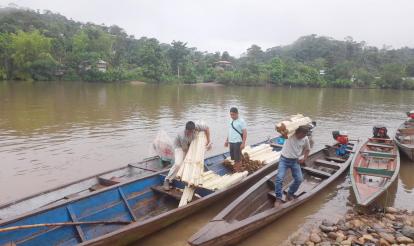
12.12.24
6 minutes readIn the Peruvian Amazon, the banana value chain is one of the most significant. Annual production is estimated at between 30 and 40 million tonnes, 30% of which is classified as third-grade, making it unsellable. Until recently, these bananas were either used for personal consumption or discarded, along with the plant’s vegetive waste. Within the framework of the Work4Progress programme of the ”la Caixa” Foundation and with the support of the CODESPA Foundation, two circular economy projects led by young indigenous people are now transforming this waste into employment and sustainability.
Since 2017, the Work4Progress programme of the ”la Caixa” Foundation has been promoting the creation of quality employment in Colombia, India, Mozambique and Peru through social innovation platforms and systemic change. Since the programme’s inception, more than 44,000 jobs have been created and over 21,000 businesses have been launched.
Through CODESPA, 15 prototypes have already been developed in Peru. Luis Cáceres, the organisation’s director in the country, states that being part of Work4Progress has enabled CODESPA to advance its goal of “developing initiatives that help people in vulnerable situations to move from a state of poverty to one of prosperity.”
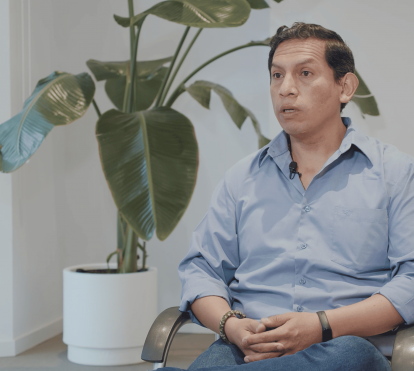
They achieve this by seeking out “disruptive solutions” that allow them to generate profitable, viable and sustainable businesses that foster positive change in the region, from an economic, environmental and social perspective.
It all starts with an idea that emerges in the early stages of the Work4Progress methodology, listening and co-creation alongside local communities, with the aim of responding to their needs through innovative solutions that take advantage of existing opportunities in the area.
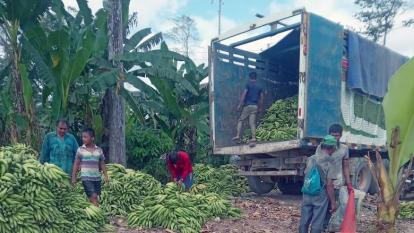
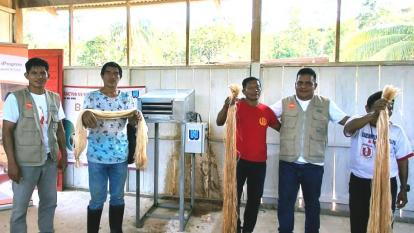
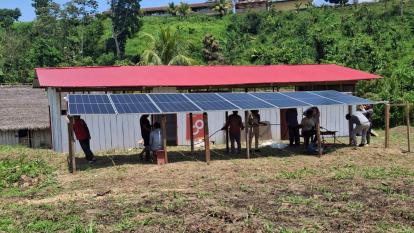
“During the listening and co-creation phases with the Amazonian communities in the province of Condorcanqui, in northern Peru,” explains Cáceres, “we identified great potential in banana cultivation that was not being exploited. Thirty percent was either kept for the producer’s own consumption or discarded. After doing some research, we discovered that the bananas could be dehydrated and turned into flakes, which could then be sold to companies producing other products, such as flour or granulates. This is how dehydrated flakes came about, an innovative product that recovers this surplus and adds value to the banana value chain.”
They also observed that the plant’s vegetive waste, which accounts for 60% to 70% of its total weight, was being entirely underutilised. “With the support of several academic institutions,” explains the CODESPA representative, “we found that it could be transformed into biofibre: the fibres from the banana stem are extracted and used as raw material for creating jewellery or fashion accessories.”
Both circular economy prototypes are crucial in the Amazon because of the climate context, which impacts production and creates a need for the community to find alternative employment.
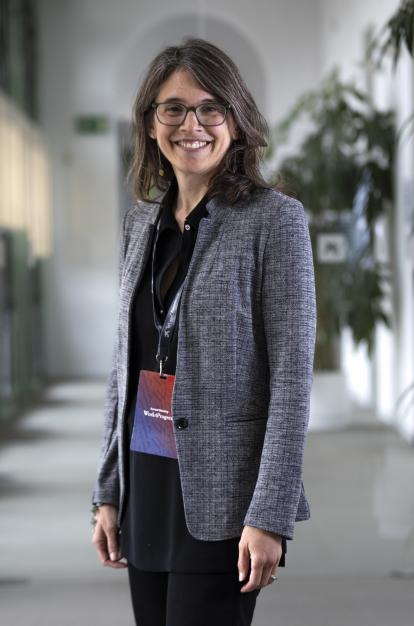
According to Hannah Stutzman, an independent expert in environmental management, “The integration of programmes focused on poverty alleviation is essential for mitigating and adapting to climate change, as the most marginalised people are the ones who will suffer the most from its effects.
On the other hand, it’s well documented that Amazonian communities are the most efficient guardians of the forests. So creating the conditions that allow them to remain there is an investment in the fight against climate change, because it promotes the long-term conservation of forests.”
“Part of the strength of the Work4Progress approach lies in its ability to build networks and involve multiple stakeholders, both public and private,” adds Stutzman. “This is the only way to create the conditions necessary to improve the resilience of communities and generate lasting income opportunities for the local population.
In addition, it drives projects that inherently reduce carbon emissions, foster circular economies and promote sustainably produced products,” she explains. In this way, the programme employs multiple approaches to contribute to the fight against climate change.
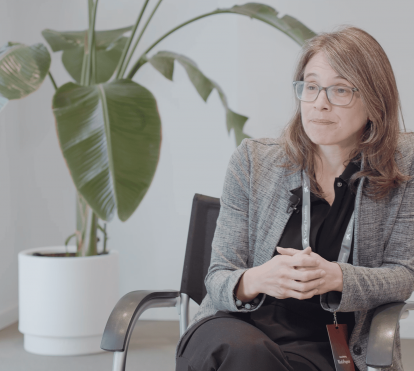
In the case of Peru’s circular economy projects, these are innovative and sustainable prototypes in every sense. The resulting products recover raw materials that were previously discarded. Through co-creation with academic institutions, Amazonian communities and the Work4Progress programme in Spain, pioneering technologies have been developed that enable all processes to be carried out using renewable energies (specifically, solar power).
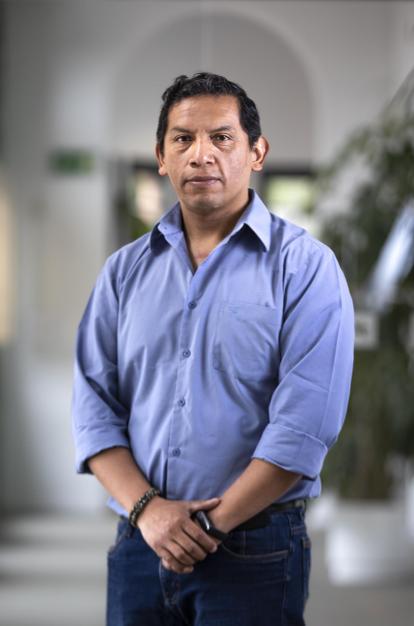
The director of CODESPA in Peru adds: “Furthermore, a value chain has been created that did not previously exist in the region and which makes it possible to improve the lives of the families involved. Finally, there’s also innovation in terms of the skills of the local population, who, upon seeing the potential of the products, have received training in new techniques, methodologies and processes that were previously unfamiliar to them.”
Both projects employ young natives of the Awajún ethnic group, who have long inhabited the Amazon. “Among them, 40% to 50% are women, which fills us with enthusiasm and motivates us to continue fostering the development of their skills so that they become the primary drivers of entrepreneurship,” says Cáceres. CODESPA aims to train and equip these young people so that, over time, they can become self-reliant and take full control of the businesses.
There are currently 12 young people working on the banana-flake prototype, while eight to 10 are involved in the biofibre project. They are already participating in national fairs to showcase their products to increasingly larger companies.
Recently, a biofibre processing plant was installed in a native community, led by the community itself. As for the dehydrated flakes, Cáceres explains that they are also about to set up their own processing plant to double or even triple production, as they are discovering there is a very significant market that they can supply.
The long-term goal is for these ventures to evolve into small businesses managed by the local population, with established markets, generating a multiplier effect within the communities. “The idea is for young people to scale up these businesses and even replicate them in other communities, applying the same methods not only in the banana industry, but also in cocoa, coffee and other Amazonian products,” says the director of CODESPA in Peru, with conviction.